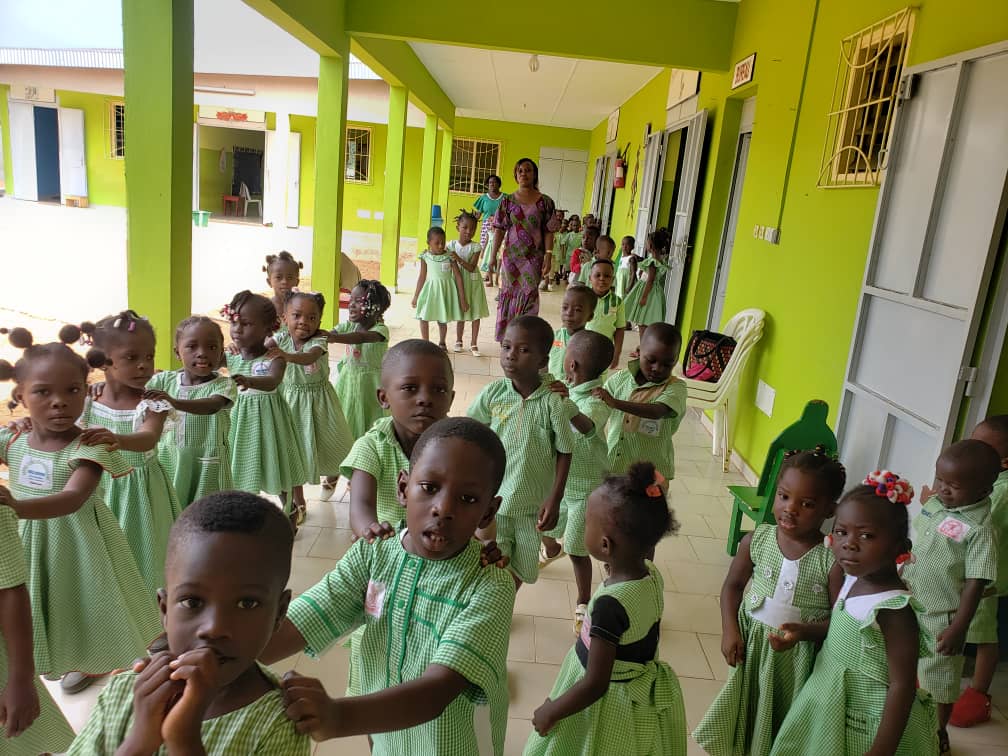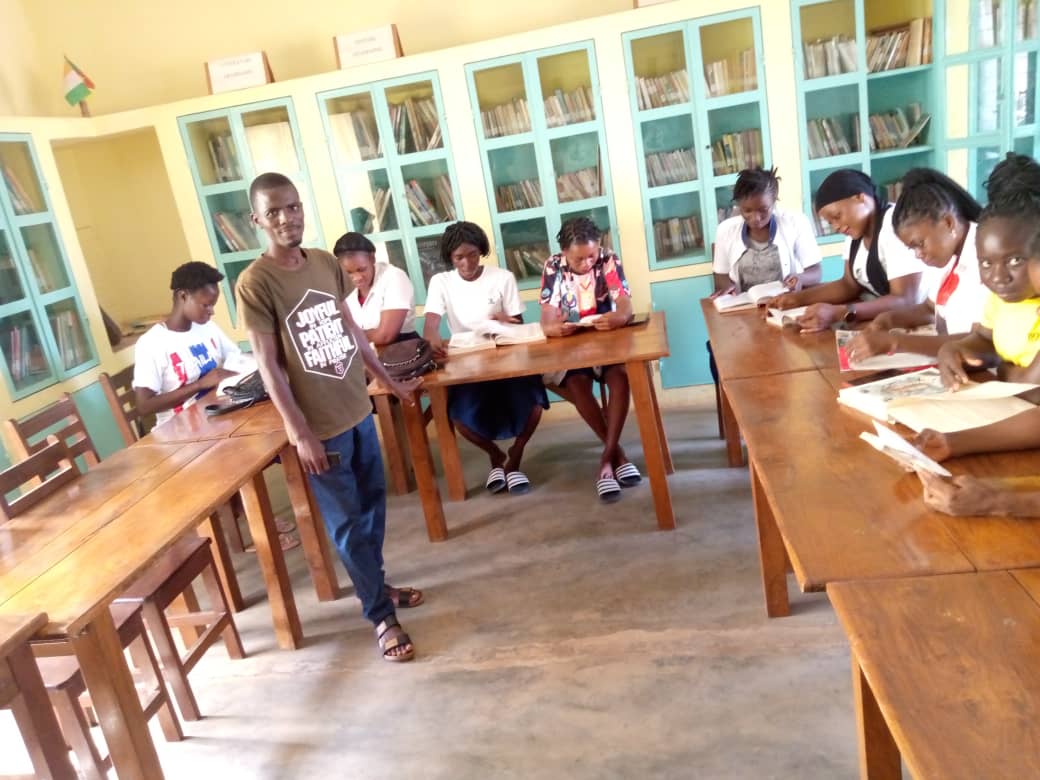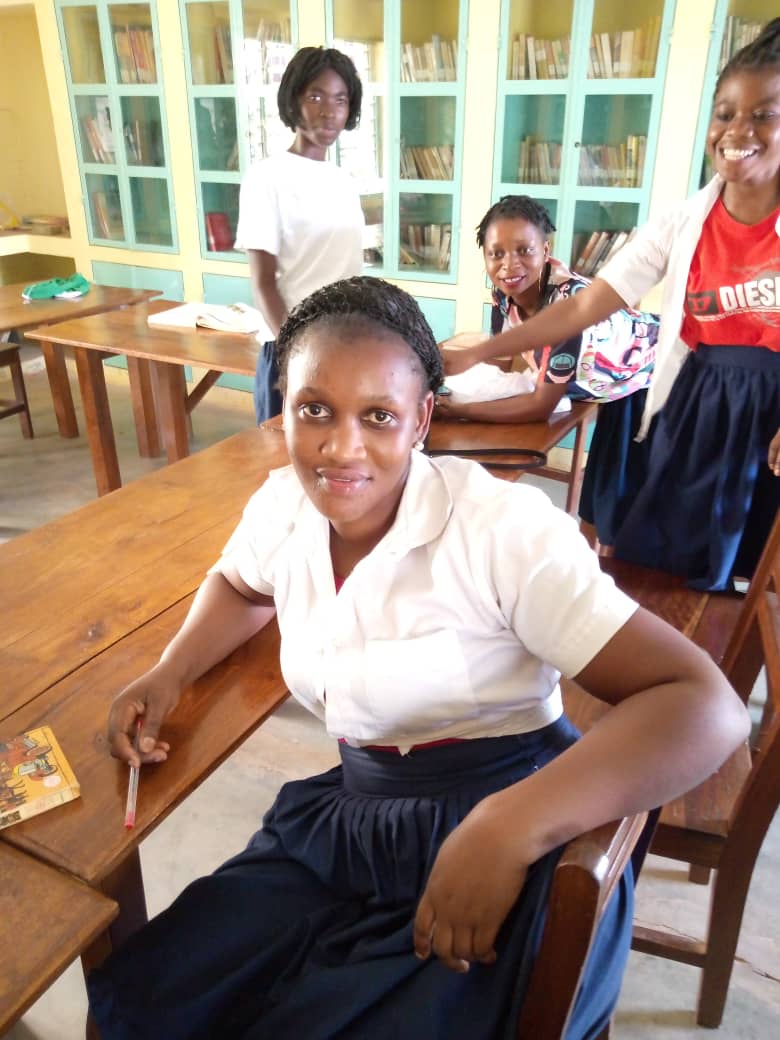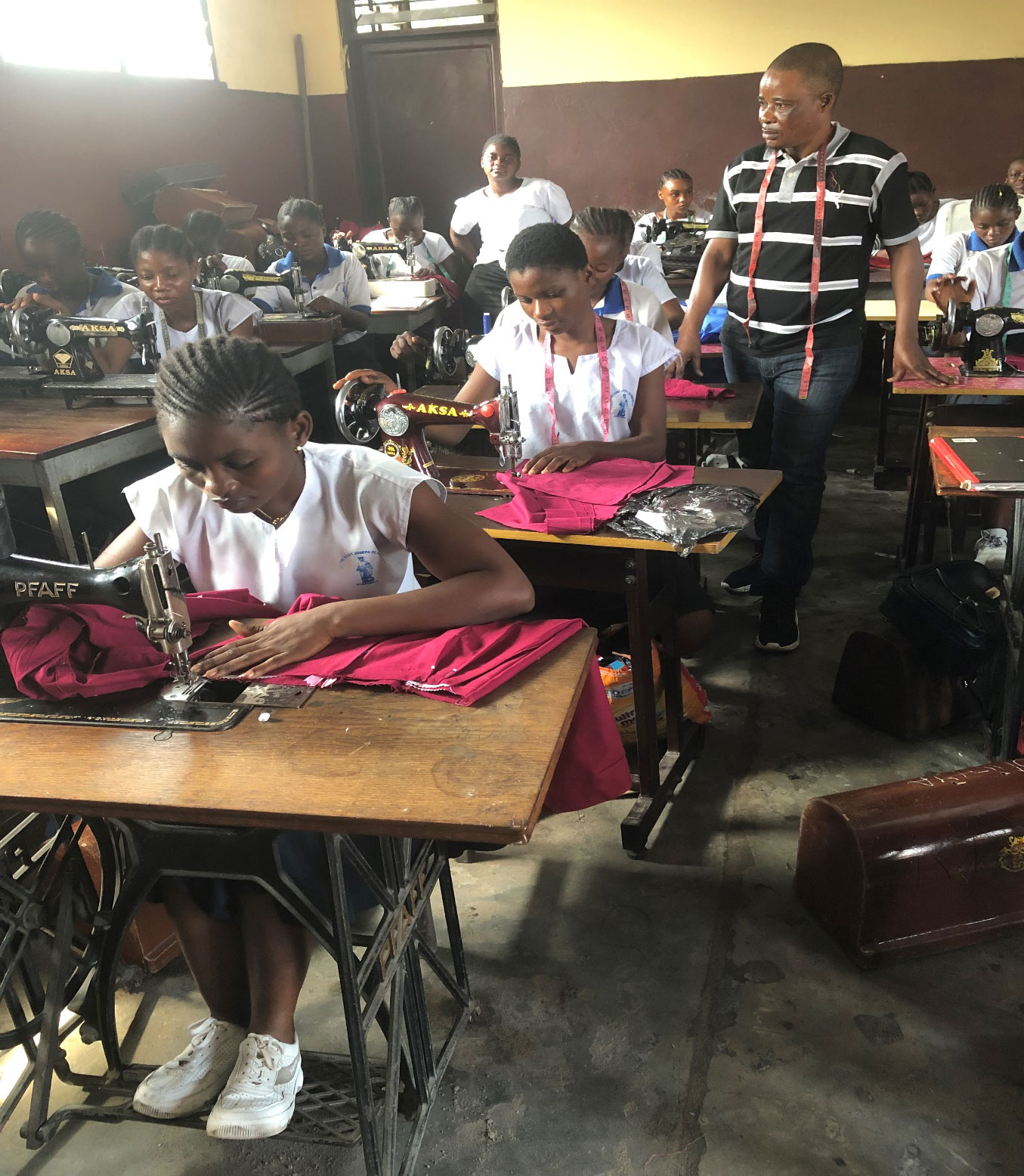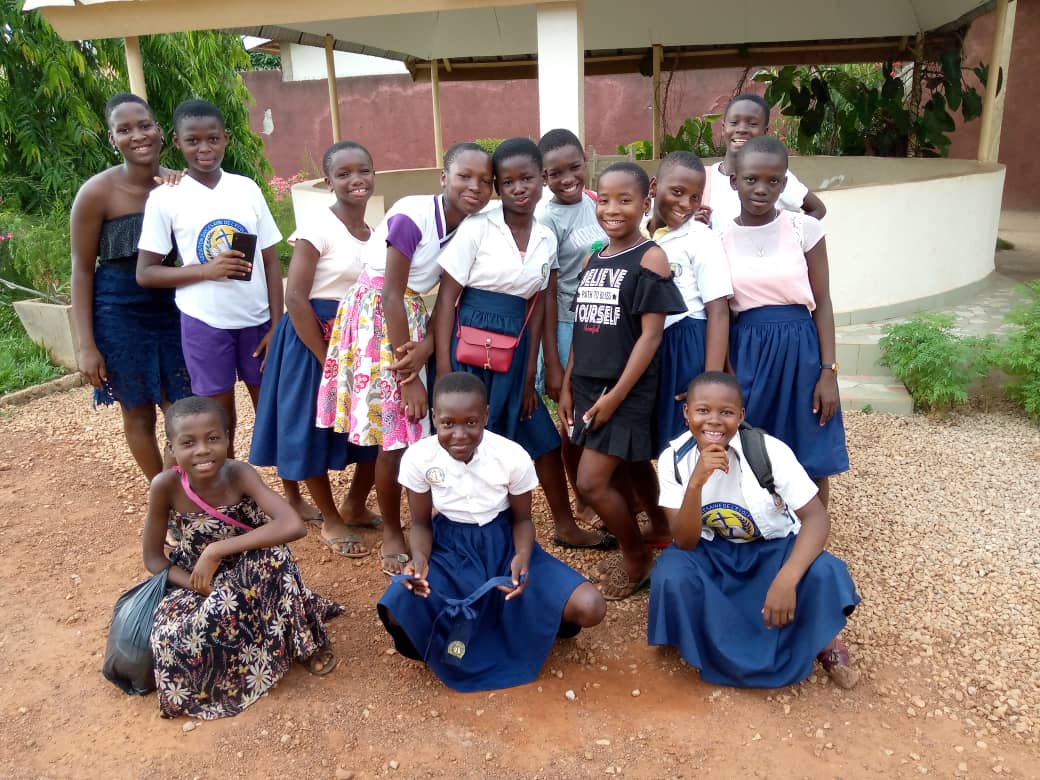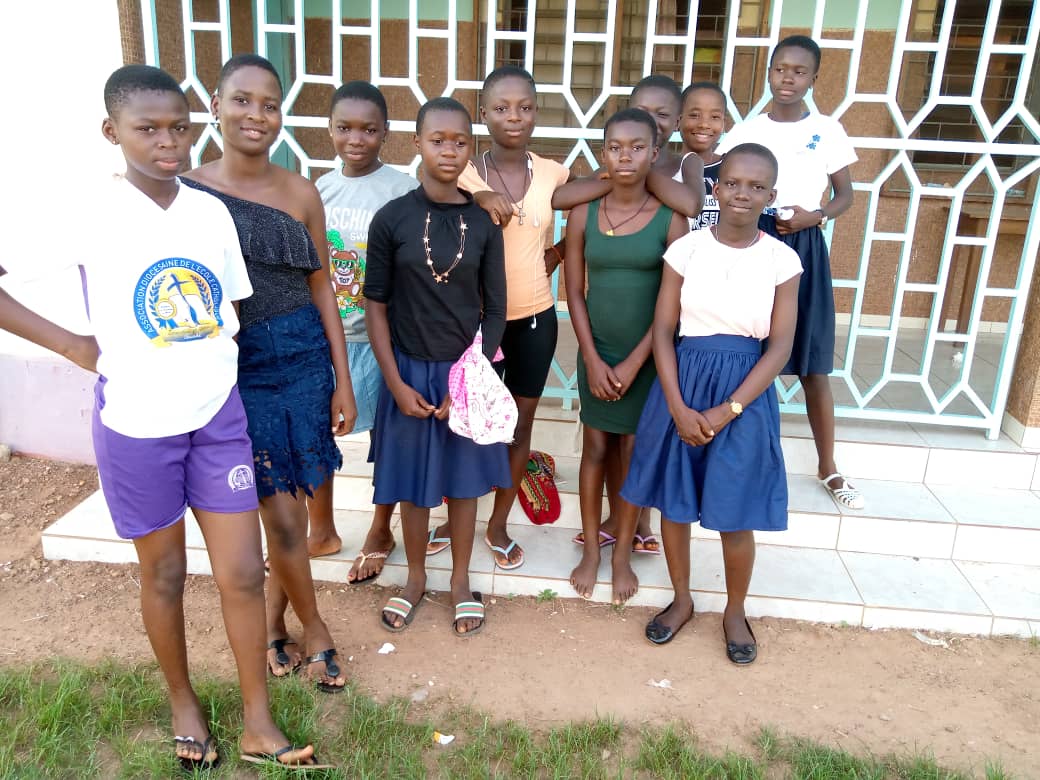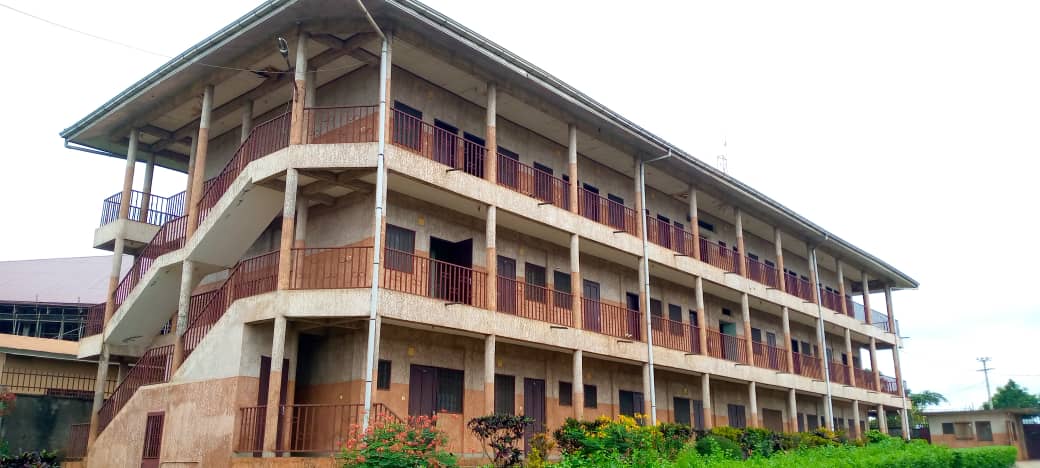
Christmas, for the joy of the children
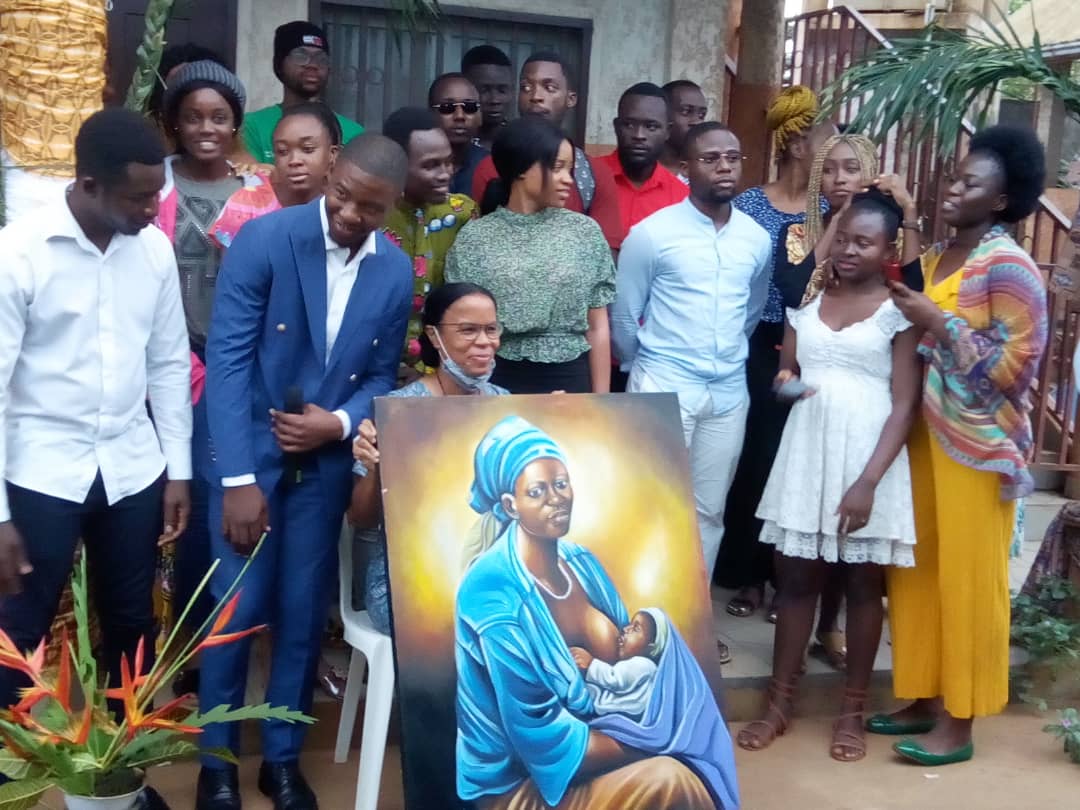
A residence unlike the others
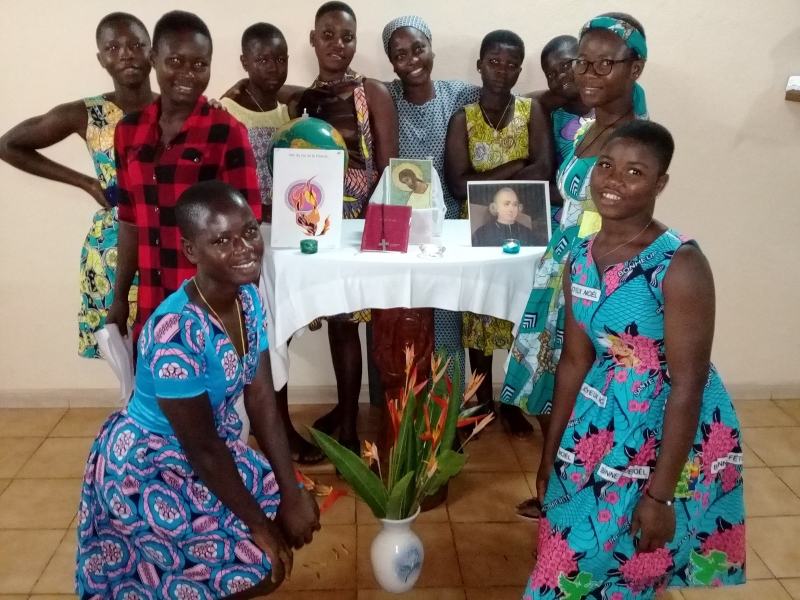
Life with the young girls in the hostel
Santa Teresita Educational Center (Honduras)
The first Daughters of Jesus who arrived in Honduras in January 1958, responded to the call to found a private Catholic primary school, where spiritual, cultural and social values would be inculcated and so provide an integral formation.
When it was founded in February 1958, the College was named and put under the patronage of ‘Santa Teresita del níño Jesús’ (Saint Thérèse of the Child Jesus), of French origin and patroness of the missions.
Since 2007, it has become the Santa Teresita Institute and Kindergarten, offering the ‘bread of knowledge’ to pre-basic and intermediate students.
Average number of students per year in the Educational Center: 228
3 Daughters of Jesus and 15 teachers are currently working at the Institute.
The Dorval Protection Center for Preschool Education (Ivory Coast)
The Dorval Protection Centre for Preschool Education was created by the congregation of the Daughters of Jesus present in Daoukro in the east of the Ivory Coast, in the Iffou Region. This initiative is part of the observations made by the sisters during their outings to the various villages. Quite often the children were left on their own or in the hands of young girls while the parents went about their daily occupations or continued their schooling. Some spent the entire day at the market with their mothers who are vendors while others spent time on the farm with their grandparents or parents, exposing them to all forms of abuse and dangers.
In view of all this risks, the sisters decided in 2012 to create an early childhood center on the same compound as the community to give parents an opportunity to work or continue their studies knowing that their children were in a safe place. In that same year, the center welcomed forty-five (45) children.
Due to the growing number of children a new building was built by the congregation of the Daughters of Jesus in 2015 not far from the community to accommodate 200 children.
To date 92 girls and 90 boys are part of Dorval protection. The center is managed by a sister of the Daughters of Jesus accompanied by five teachers, a cook, a bus driver, a night watchman and a driving assistant. The center is under the protection of Mother Celestine, a Daughter of Jesus, who after her first vows took the name DORVAL.
The Jean Liausu Literacy Center (Daoukro – Ivory Coast)
The Jean Liausu Literacy Center was created in 1975 by the community of the Daughters of Jesus in Daoukro to offer a literacy program to the many men and women who are unable read and write in the town. Jean LIAUSU, founder of the Congregation of the Daughters of Jesus of Vaylats is the patron of the center.
sup There are sixty-five (65) students following the program, forty (40) women and twenty-five (25) men while four (4) teachers deliver the sessions thrice weekly. These courses bring light to men and women who did not have the chance to go to school in their early childhood. For them, “learning to read and write is learning to live better”.
The Jean Liausu Library in Daoukro (Ivory Coast)
The Daughters of Jesus Library in Daoukro was opened in 2007. Now the capital of the Iffou region, Daoukro was formerly an administrative centre. Many young people came from the villages for their studies, and even those from the city found it difficult to do research for a presentation or to deepen their understanding of their course material. Some also wanted to discover works or authors mentioned by their course professor, so quenching their thirst for reading. Most of the young people were deprived because they had neither course books nor documents. It was this lack that led to the setting up of the documentation centre in response to their numerous requests and as a means of helping to improve the school results in Daoukro and the surrounding area.
The library has about fifty seats with adjoining study rooms. The library has some 5000 books, consisting of textbooks, encyclopedias, dictionaries, general works and literature.
Saint Joseph de Kermaria Center (DRC)
MUNICIPALITY OF LIMETE- KINSHASA – DRC
We are located in the “fisherman’s district”, one of the most disadvantaged neighborhoods in Kinshasa. Because of the war, the population has grown disproportionately in recent years. It is basic survival for many families; children and young people are the first victims. Because of a lack of money, they cannot attend school. They just survive on the street.
With the arrival of the community of the Daughters of Jesus in the neighborhood in June 2000 it became possible to set-up a Literacy and Remedial Center in 2001.
The objective of the Center:
- To welcome children between the ages of 9 and 16 who were not lucky enough to enter public school and also those who had great academic difficulties and several grade repetitions.
- To promote the instruction and overall education of the child or young person with a view to their integration or reintegration into the school system as well as their integration into the society to which they belong.
- To also welcome adults to evening classes in order to help reduce illiteracy in Kingabwa and to fight ignorance and poverty. The Center seeks to raise the literacy level of the population since it aims at being a factor in the development of the district as a whole.
The Center is not a school as such; it has rather, a substitute role. The students of level 111 can obtain the certificate of completion of the primary cycle.
How the Center functions
Up to now, the Center operates a tailoring section, a literacy program and remedial teaching. The tailoring section is growing because the Center welcomes young people, mothers as well as unmarried mothers in order to offer training that will allow them to earn their living and integrate society. This year, 2022, the Center welcomed 106 girls and 1 boy in tailoring, and 241 students for remedial teaching.
We have a lot of demand for cutting and sewing and for aesthetics as well. Unfortunately the premises are insufficient to accommodate all these demands.
The “Mother of Mercy Center” in Brobo (Ivory Coast)
The Centre’s objectives
The main objectives of this socio-educational centre are:
- to enable the social integration of children and young people living with a disability.
- to develop their intellectual and manual skills so that they can take care of themselves in their rural environment.
This is also done by raising awareness of this project in the surrounding villages.
We want to:
- to lead parents to accept their child’s disability.
welcome to the Centre all children and young people from the surrounding villages who live with a disability. - accompany those who can do so until they become financially independent through vocational training or through the sale of products made at the Centre.
How is the training organised?
Given the many different types of disability, the young people are divided into different groups to ensure that they are dealt with efficiently according to their disability. They are followed by one or two educators.
Invisible
The Rainbow group
This group brings together children and young people with the most severe psychological problems
(epileptics, hemiplegics, albinos, paraplegics). They are as varied in their condition as the colours of the rainbow, hence the name of the group.
There is a special class for autistic children and young people.
The children are introduced to basic life skills: learning how to wash, brush their teeth, get dressed. It is important to encourage each child to be as independent as possible, and to help them take their place in a group while taking others into account.
The group of deaf children
The deaf children are the most numerous. Accompanied by two leaders, they work in sign language. The pupils progress quickly, and are happy to learn to name people, animals and objects, to read and write sentences, and to do difficult calculations.
iIn collaboration with the National Institute of Social Training in Abidjan, students from the Masters programme in Special Education support this learning through their assignment to the Mère de Miséricorde centre for the period of their practical training.
A significant step forward is that several deaf children have taken the competitive examination for entry into the sixth form at Brobo high school and have been admitted.
The Apprentices
The programme includes the following subjects: French, mathematics, life education, manual activities.
For the deaf and dumb all activities are conducted in sign language.
Many young people have the opportunity to do practical training in dressmaking, hairdressing and masonry with local craftsmen.
Training in dressmaking
The young people who are more disabled can participate over a period of five or six years.
Twenty apprentices are supervised by a master tailor four days a week.
For the Centre’s 10th anniversary celebration, they made all the uniforms for the young people at the Centre. At this stage of the apprenticeship, it took two days to make a uniform.
This training could be further improved if we had more equipment at the Centre, in particular a sufficient number of good sewing machines, as well as the possibility of financing more hours of training provided by the master tailor approved to carry out the apprenticeship.
The Dressmaking Workshop
As a follow-up to the apprenticeship period in which the young people with disabilities who are received and trained in the Mother of Mercy Centre participate, we have set up a Dressmaking Workshop within the Centre. In this workshop, the young people are accompanied in their first steps as professional dressmakers and gradually in the creation of their own structure.
Despite that, we notice that after the training, some young people still find themselves on the street. Their parents do not have the financial means to facilitate the installation of their own sewing workshop.
The Dressmaking Workshop is intended as a springboard to help the young disabled people to develop their talents and creativity, and to take responsibility for themselves through work that corresponds to both their abilities and a real need.
A clothing shop in the town of Brobo, created by the Centre, enables the young people to sell their clothes
The team of animators and the community of the Sisters of the Daughters of Jesus of Brobo, thank the Sisters of our Congregation and all the different donors for their concern and financial support for this unique work which meets a great need.
Today, many children are saved thanks to your support and your prayers. May God repay you a hundredfold!
The residential home for students (Ivory Coast)
The residential home for students located on the same compound as the community of the Daughters of Jesus in Daoukro opened its doors in the 1970s for young girls from the remote villages three days a week for an integral training (literacy, sewing, cooking, etc.). However, with the creation of primary schools in the villages, the home changed its perspectives and opened its doors to girls with no family members in Daoukro, allowing them to continue their secondary school studies from form 6 until the end of the Baccalaureate year.
The community of sisters in Daoukro supervises the girls and tries to instill in them values such as: community life, mutual aid, solidarity, organization skills… To date, twenty-nine (29) girls aged eleven (11) to twenty-one (21) are residents at the home. Elles sont dans les classes scolaires de la 6ème au Baccalauréat.
Our Lady of Africa Student Hostel, Soa (Cameroon)
Our Lady of Africa Student Hostel is an accommodation facility managed by the Association “Homme Debout” (AHD) and run by the Congregation of the “Daughters of Jesus”, under the responsibility of a Daughter of Jesus as Director.
Opened in September 2010, the Foyer aims to be a place where a student can live in harmony, peace and joy in order to complete his or her intellectual, human and spiritual formation. It welcomes young students from Universities and Schools of Higher Education, from all religious and social backgrounds.
The freedom that characterises this establishment is based on the mutual trust and sense of responsibility of each young person who lives there.
A student residence provides accommodation first and foremost, but it is also a place for exchange, learning to live in socially in mutual respect, activities… where each resident benefits from an attentive and personalised welcome, thus favouring the success of his or her studies in a friendly and supportive atmosphere.
The hostel has 49 rooms, some of which are accessible to young disabled people.
The objectives of the OLA Student Hostel, Soa are :
- to provide students with living conditions that enable them to complete their intellectual studies.
- to help students to learn to live together (social life) in mutual respect
- to provide spiritual support to those who wish it through the presence of a religious community and the activities of the university parish.
All living together presupposes a certain number of common rules for the respect of each other, of the establishment and of good relations. The residence has its own rules of procedure which set out how it functions and the use of the premises.







